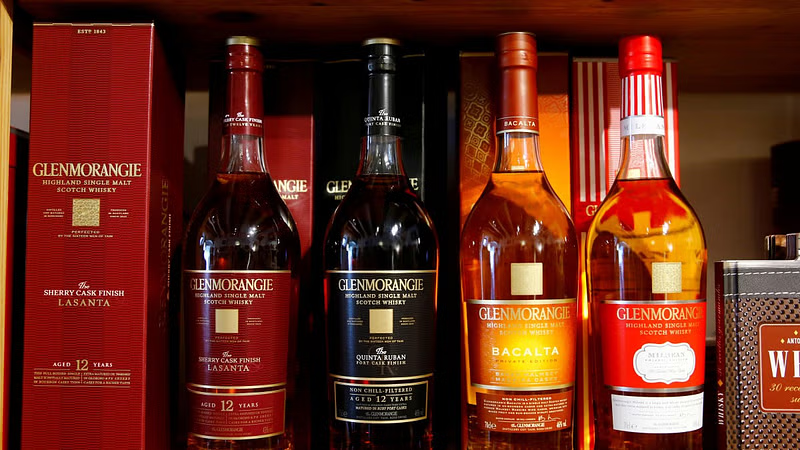
India-UK FTA to Boost Scotch and Premium Indian Whisky
India’s growing appetite for premium spirits is set to gain further momentum, as the long-anticipated India-UK Free Trade Agreement (FTA) moves closer to reality. One of its most significant provisions—slashing import duties on Scotch whisky—is expected to not only expand access to iconic global brands but also catalyze a premiumisation trend among Indian distillers.
Scotch Gets a Smoother Entry
Under the proposed FTA, import duties on Scotch whisky—currently levied at a steep 150%—are expected to be cut by 60% over ten years, with a 15% initial reduction in the first year. This gradual reduction will make premium and super-premium Scotch whiskies more accessible to Indian consumers, helping brands like Johnnie Walker, Chivas Regal, and Glenfiddich capture more market share in one of the world’s fastest-growing whisky markets.
The move aligns with the broader trade goal of enhancing bilateral investment and easing market access. For UK-based distillers, this means a clearer runway into a country that consumed 2.5 billion litres of spirits in 2023 alone, with whisky accounting for a lion’s share.
A Wake-Up Call for Indian Distillers
While increased Scotch imports may be perceived as a threat to local distillers, Indian whisky makers are viewing the FTA as a strategic opportunity. According to analysts, brands such as Amrut, Radico Khaitan, and Piccadilly are intensifying their focus on the premium segment, refining production processes, and enhancing branding to compete with their Scottish counterparts.
With more Indian consumers trading up from mass-market labels to premium offerings, local distillers are looking to improve product quality and tap into the aspirational lifestyle narrative that Scotch often embodies.
Rising Quality, Rising Exports
Interestingly, the FTA may also indirectly benefit Indian whisky exports. By aligning with global quality benchmarks and adopting more transparent labeling practices, Indian premium whiskies can better position themselves in international markets. Amrut and Paul John have already made significant inroads in Europe and the US—this trade agreement could help accelerate that trajectory.
Industry Optimism and Government Strategy
The Confederation of Indian Alcoholic Beverage Companies (CIABC) has welcomed the FTA’s potential, noting that better access to quality Scotch could uplift the entire industry. It is also urging the government to support local distillers in modernizing facilities and simplifying excise regulations to maintain competitiveness.
In parallel, the Indian government views this deal as a showcase of its commitment to global trade liberalization, without compromising the interests of domestic industries. The staged duty reduction ensures a level playing field while encouraging quality improvements across the board.
Final Pour
As the India-UK FTA edges closer to implementation, both Scotch exporters and Indian distillers have reason to raise a glass. The deal is more than a tariff tweak—it’s a catalyst for evolution in one of the world’s most dynamic whisky markets.
From premiumisation to global positioning, India’s whisky industry may be on the verge of its next big transformation.
Discover more about whisky casks and promotions at whiskybulletin.com.